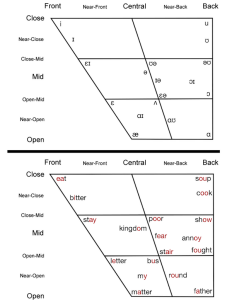Global Tongue Twisters: A Multilingual Journey of Fun and Fumbles
Tongue twisters, delightfully challenging phrases that twist your tongue and tangle your words, are not only entertaining but also fantastic tools for improving language fluency and practicing clear diction. These playful linguistic puzzles often use alliteration, repetition, and tricky sound combinations, such as those that have overlapping representations in our brains, to trip us up. But there’s more to them than just fun and games. Tongue twisters can reveal intriguing insights into the phonotactics of a language — the rules about how the smallest units of language (sounds in spoken languages and parameters, or handshapes with a particular orientation, in signed languages) can be combined. They can also shed light on what makes each language unique. Ready to discover some surprising insights into languages from around the world through their tongue twisters? Let’s dive in and explore!
1. American Sign Language
Because American Sign Language (ASL) is signed rather than spoken, its “tongue twisters” are actually “finger fumblers,” or signs that are difficult to physically articulate in rapid succession. Some examples include “Good Blood, Bad Blood,” “W6V29F1D,” and “Supercalifragilisticexpialidocious.” Watch the video below to learn more.
2. Chinese
Have you ever heard of a “one-syllable article”? This intriguing form of constrained writing in Chinese literature, typically found in Classical Chinese, uses only one sound with different tones. It takes advantage of the language’s abundance of homophones. Because the characters used are of different meanings, a one-syllable article is entirely understandable in writing but becomes an incomprehensible tongue twister when read aloud, especially in Mandarin Chinese. A famous example is the narrative poem “Lion-Eating Poet in the Stone Den,” composed of about 94 characters where every word is pronounced “shi.” Check it out below!
《施氏食狮史》
« Shī Shì shí shī shǐ »
« Lion-Eating Poet in the Stone Den »石室诗士施氏,嗜狮,誓食十狮。
Shíshì shīshì Shī Shì, shì shī, shì shí shí shī.
In a stone den was a poet called Shi Shi, who was a lion addict and had resolved to eat ten lions.氏时时适市视狮。
Shì shíshí shì shì shì shī.
He often went to the market to look for lions.十时,适十狮适市。
Shí shí, shì shí shī shì shì.
At ten o’clock, ten lions had just arrived at the market.是时,适施氏适市。
Shì shí, shì Shī Shì shì shì.
At that time, Shi had just arrived at the market.氏视是十狮,恃矢势,使是十狮逝世。
Shì shì shì shí shī, shì shǐ shì, shǐ shì shí shī shìshì.
He saw those ten lions and, using his trusty arrows, caused the ten lions to die.氏拾是十狮尸,适石室。
Shì shí shì shí shī shī, shì shíshì.
He brought the corpses of the ten lions to the stone den.石室湿,氏使侍拭石室。
Shíshì shī, Shì shǐ shì shì shíshì.
The stone den was damp. So he asked his servants to wipe it.石室拭,氏始试食是十狮。
Shíshì shì, Shì shǐ shì shí shì shí shī.
After wiping the stone den, he tried to eat those ten lions.食时,始识是十狮尸,实十石狮尸。
Shí shí, shǐ shí shì shí shī shī, shí shí shí shī shī.
When he ate, he realized that these ten lions were, in fact, ten stone lion corpses.试释是事。
Shì shì shì shì.
Try to explain this matter.
3. English

IPA English Vowels and Diphthongs; TheCPMills, CC BY-SA 4.0, via Wikimedia Commons
Many people mistakenly think that English has only about 5 vowels (A, E, I, O, U, and sometimes Y), but that’s only counting vowel letters. In reality, English has around 14 vowel sounds, some of which are pronounced closely together in the mouth. A 2013 study found that the brain largely divides vowels into two categories based on whether they require rounded lips (e.g., /u/, /ʊ/) or not (e.g., /i/, /a/). Switching between vowels within the same category can be challenging, as in the following tongue twister. Try it out!
Betty Botter bought some butter
But she said the butter’s bitter
If I put it in my batter, it will make my batter bitter
But a bit of better butter will make my batter better
So ‘twas better Betty Botter bought a bit of better butter
4. German
A classic German tongue twister, “Rhabarberbarbara,” gained mainstream popularity in early 2024 thanks to a viral rap by German comic singer-songwriter Bodo Wartke and music producer Marti Fischer (first posted in December 2023 and followed by a part 2 in May 2024). This tongue twister highlights the remarkable productivity of German compound nouns. It starts with the simple “Rhabarberbarbara” (Rhubarb Barbara) and expands to the complex “Rhabarberbarbarabarbarbarenbartbarbierbierbarbärbel” (Rhubarb Barbara bar barbarians’ beard barber beer bar Bärbel).
Rhabarberbarbara > Rhabarberbarbarabarbarbarenbartbarbierbierbarbärbel
Rhubarb Barbara > Rhubarb Barbara bar barbarians’ beard barber beer bar Bärbel
5. Luganda
In Luganda, a Bantu language spoken primarily in Uganda, long and short vowels and consonants are in contrastive distribution. What does that mean? It means that saying a vowel or consonant twice as long in a word can change the word’s meaning completely! Luganda tongue twisters often make use of this characteristic of the language, as in the one below.
Akawala akaawa Kaawa kaawa akaawa ka wa?
The girl who gave Kaawa bitter coffee, where is she from?
What are your favorite tongue twisters from any language? Let us know on social media by tagging @PlanetWordDC or #PlanetWord.



